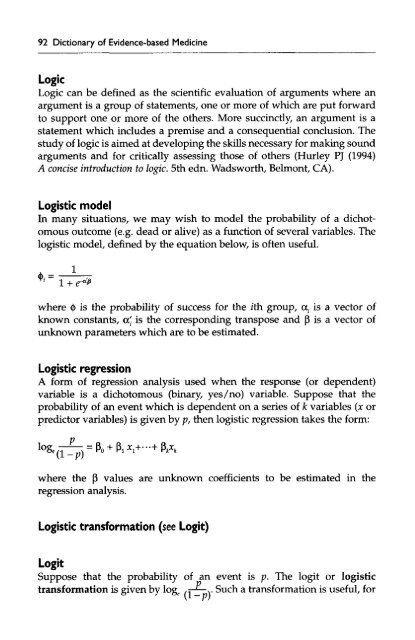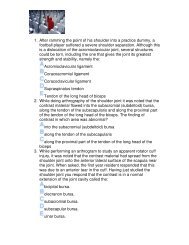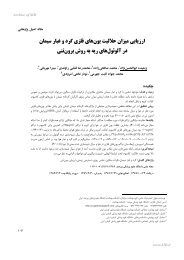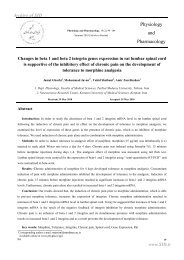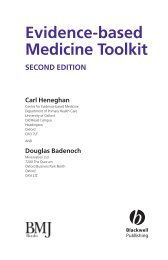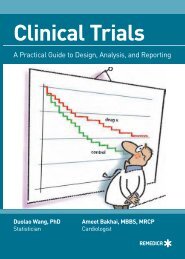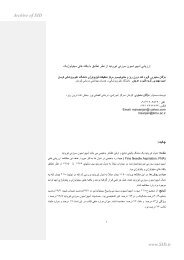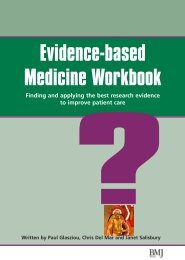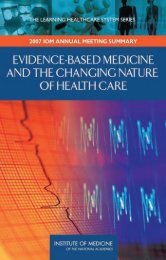Dictionary of Evidence-based Medicine.pdf
Dictionary of Evidence-based Medicine.pdf
Dictionary of Evidence-based Medicine.pdf
You also want an ePaper? Increase the reach of your titles
YUMPU automatically turns print PDFs into web optimized ePapers that Google loves.
92 <strong>Dictionary</strong> <strong>of</strong> <strong>Evidence</strong>-<strong>based</strong> <strong>Medicine</strong><br />
Logic<br />
Logic can be defined as the scientific evaluation <strong>of</strong> arguments where an<br />
argument is a group <strong>of</strong> statements, one or more <strong>of</strong> which are put forward<br />
to support one or more <strong>of</strong> the others. More succinctly, an argument is a<br />
statement which includes a premise and a consequential conclusion. The<br />
study <strong>of</strong> logic is aimed at developing the skills necessary for making sound<br />
arguments and for critically assessing those <strong>of</strong> others (Hurley PJ (1994)<br />
A concise introduction to logic. 5th edn. Wadsworth, Belmont, CA).<br />
Logistic model<br />
In many situations, we may wish to model the probability <strong>of</strong> a dichotomous<br />
outcome (e.g. dead or alive) as a function <strong>of</strong> several variables. The<br />
logistic model, denned by the equation below, is <strong>of</strong>ten useful.<br />
f<br />
1 +<br />
where § is the probability <strong>of</strong> success for the zth group, a ; is a vector <strong>of</strong><br />
known constants, a' is the corresponding transpose and P is a vector <strong>of</strong><br />
unknown parameters which are to be estimated.<br />
Logistic regression<br />
A form <strong>of</strong> regression analysis used when the response (or dependent)<br />
variable is a dichotomous (binary, yes/no) variable. Suppose that the<br />
probability <strong>of</strong> an event which is dependent on a series <strong>of</strong> k variables (x or<br />
predictor variables) is given by p, then logistic regression takes the form:<br />
where the P values are unknown coefficients to be estimated in the<br />
regression analysis.<br />
Logistic transformation (see Logit)<br />
Logit<br />
Suppose that the probability <strong>of</strong> an event is p. The logit or logistic<br />
transformation is given by log e /r^-\- Such a transformation is useful, for


